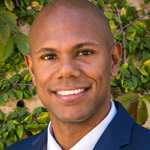Ignacio Cofone, Mugambi Jouet et Kerry Sloan nommés professeurs adjoints; Vincent Forray prend les rênes du Centre Crépeau; nouveau mandat pour François Crépeau au CHRLP; Fabien Gélinas nommé Chercheur Norton Rose Fulbright; nos professeurs prennent la tribune; et nouvelles publications à la Faculté.
|
|
|
|
Nouveaux membres du corps professoral
- Ignacio Cofone se joindra à la Faculté de droit à titre de professeur adjoint à compter du 1er août 2018. Cette année, il enseignera un cours sur le droit des affaires et un sur la confidentialité de l’information.
- Mugambi Jouet se joindra à la Faculté à titre de boursier Boulton le 1er août 2018 et sera nommé professeur adjoint le 1er août 2019. Mugambi Jouet s’intéresse au droit pénal et au droit comparé dans une perspective multidisciplinaire combinant l’histoire, la sociologie et les sciences politiques.
- Kerry Sloan, actuellement boursière Boulton à la Faculté jusqu’en août 2018, sera nommée professeure adjointe à compter du 1er août 2019. Kerry Sloan s’intéresse au droit et à l’histoire juridique métis.
Nominations et prix
- Le professeur Vincent Forray a été nommé à la tête du Centre Paul-André Crépeau de droit privé et comparé pour un mandat de deux ans.
- Le professeur François Crépeau a été reconduit comme directeur du Centre sur les droits de la personne et le pluralisme juridique pour un nouveau mandat de deux ans.
- Le professeur Fabien Gélinas a été nommé Chercheur Norton Rose Fulbright en arbitrage et droit commercial pour un mandat d’un an.
Profs in the News
Fifteen years after equal marriage – many successes, but much more work to be done
Robert Leckey, The Globe and Mail, 12 June 2018
“After 14 years, we have chipped a few of the dishes we received as wedding presents. From one angle, our marriage isn’t long. From another, it spans most of the time since the Ontario Court of Appeal made history, on June 10, 2003, by allowing this country’s first same-sex marriages. Like other anniversaries, this one prompts celebration of the past and reflection on future challenges and work.” Keep reading.
Britain Still Faces an Uncertain Future
Armand de Mestral, Center for International Governance Innovation, 29 May 2018
CIGI, in conjunction with the British Institute of International and Comparative Law, launched a book titled Complexity’s Embrace: The International Law Implications of Brexit on May 3. Based on papers presented to a conference in London on January 31, 2017, the book covers a wide range of problems posed to the British government by Brexit. With the Brexit date only 10 months away, few of the issues raised appear to have been resolved to the satisfaction of either the British government or the negotiators of the European Union. Keep reading.
Q&A with Payam Akhavan: The Plight of the Rohingya
PKI Global Justice Journal, Kirsch Institute, 16 May 2018
“Without listening to the voice of victims, we easily forget the reality of suffering and why we cannot remain passive in the face of radical evil,” says Professor Payam Akhavan in an interview with James Hendry, editor-in-chief of the Philippe Kirsch Institute. “I had the pleasure of hosting Bob Rae at McGill University on March 1st and among the audience members were two Rohingya who had driven 8 hours from Kitchener in Ontario to be there. They stood up and told their stories and that brought to life the reality of the situation. Abstractions and statistics will not move us to act. We need to connect with the reality of suffering in order to appreciate the immense responsibility that rests on our shoulders.” Read the full interview.
Quebec families with more than 2 parents fight for recognition
Verity Stevenson, CBC News, 12 May 2018
In May, Superior Court Justice Gary Morrison urged provincial lawmakers to consider the possibility of multi-parent families after a complex legal fight involving a little girl and three adults living in the Laurentians. CBC Montreal interviewed Dean Robert Leckey, who says there’s no indication that the Government in Quebec City has any interest in taking this up. Watch the interview
 What weight to give victims’ sentencing recommendations?
What weight to give victims’ sentencing recommendations?
Jeffrey Kennedy, DCL Candidate, and Marie Manikis, Montreal Gazette, 24 April 2018
With sentencing hearings continuing in the case of Quebec’s mosque shooter, Superior Court Justice François Huot has now heard directly from Alexandre Bissonnette’s victims regarding the impact of the January 2017 shooting and their feelings about what should happen next. As Canadians share in victims’ heart-rending accounts through media reports, the controversy surrounding victim input, and the ambiguities about how Canadian law incorporates it, have been left below the surface. Keep reading.
The red flags ahead of Canada’s marijuana legalization
Daniel Weinstock, The Globe and Mail, 22 April 2018
One of the first things medical students are taught is some version of the precept, “first do no harm.” It’s a good maxim for life in general, and, more specifically, for any policy maker looking to make significant changes to the existing order of things. […] As Bill C-45 moves closer to becoming law, a number of warning flares are starting to go off, warns Professor Daniel Weinstock. Keep reading.
 Faut-il être riche pour avoir accès à la justice?
Faut-il être riche pour avoir accès à la justice?
24/60, Radio-Canada, 20 avril 2018
Un jugement ordonnant une pension alimentaire record de 1,4 million de dollars au terme d’une bataille juridique qui a coûté plus de 12 millions de frais juridiques a relancé le débat sur l’accès à la justice. En entrevue à 24/60, Louise Otis, juge administrative internationale et professeure adjointe à la Faculté de droit, pense que l’on doit « payer pour le surcoût de l’utilisation du système judiciaire ». Lire la suite.
 Respecter les obligations du Canada envers les premières nations
Respecter les obligations du Canada envers les premières nations
Richard Janda, La Presse+, 19 avril 2018
La Presse a demandé au professeur Richard Janda et Mireille Fournier, BCL/LLB’16 (candidate à la maîtrise, Université de Victoria) ce qu’ils feraient à la place du premier ministre Trudeau au sujet de l’oléoduc Trans Mountain. L’approbation de la construction de l’oléoduc a été faite en rupture des obligations internationales et constitutionnelles du Canada envers les Premières Nations, affirment-ils. « À la place du premier ministre, nous nous acquitterions des obligations du Canada et nous reconnaîtrions les risques juridiques trop élevés que comporte la mise en marche du projet. » Lire la suite.
New Faculty Publications
- Professor Hoi Kong co-edited The Cambridge Handbook of Deliberative Constitutionalism, which also features chapters by Professors Mark Walters and Daniel Weinstock.
- Le professeur Vincent Forray a expliqué en entrevue la démarche de son récent ouvrage Décrire le droit… et le transformer, publié aux éditions Dalloz.
- Professor Omar Farahat published “Debating the Imperative Mood in Uṣūl al-Fiqh Collective Deliberation and Legal Validity” in
- The second edition of “Military Self-Interest in Accountability for Core International Crimes” was published by TOAEP, with a contribution by Professor René Provost.
- Professor Mark Antaki co-edited Sensing the Nation’s Law. Historical Inquiries into the Aesthetics of Democratic Legitimacy, published by Springer.
- Professor Stephen Smith, visiting at Cambridge University as Herbert Smith Freehills Visitor and British Academy Visiting Fellow, delivered the 2018 Cambridge Freshfields Lecture entitled “Rights, Wrongs, and Injustices: Taking Remedies Seriously“.
- Professor François Crépeau co-authored “‘Migrants in Vulnerable Situations’ and the Global Compact for Safe Orderly and Regular Migration”, published in the Queen Mary School of Law Legal Studies Research Paper No. 273/2018.
- Le professeur Frédéric Mégret a publié un essai intitulé « La cour pénale internationale: a-t-elle fonctionné comme prévu? ».


